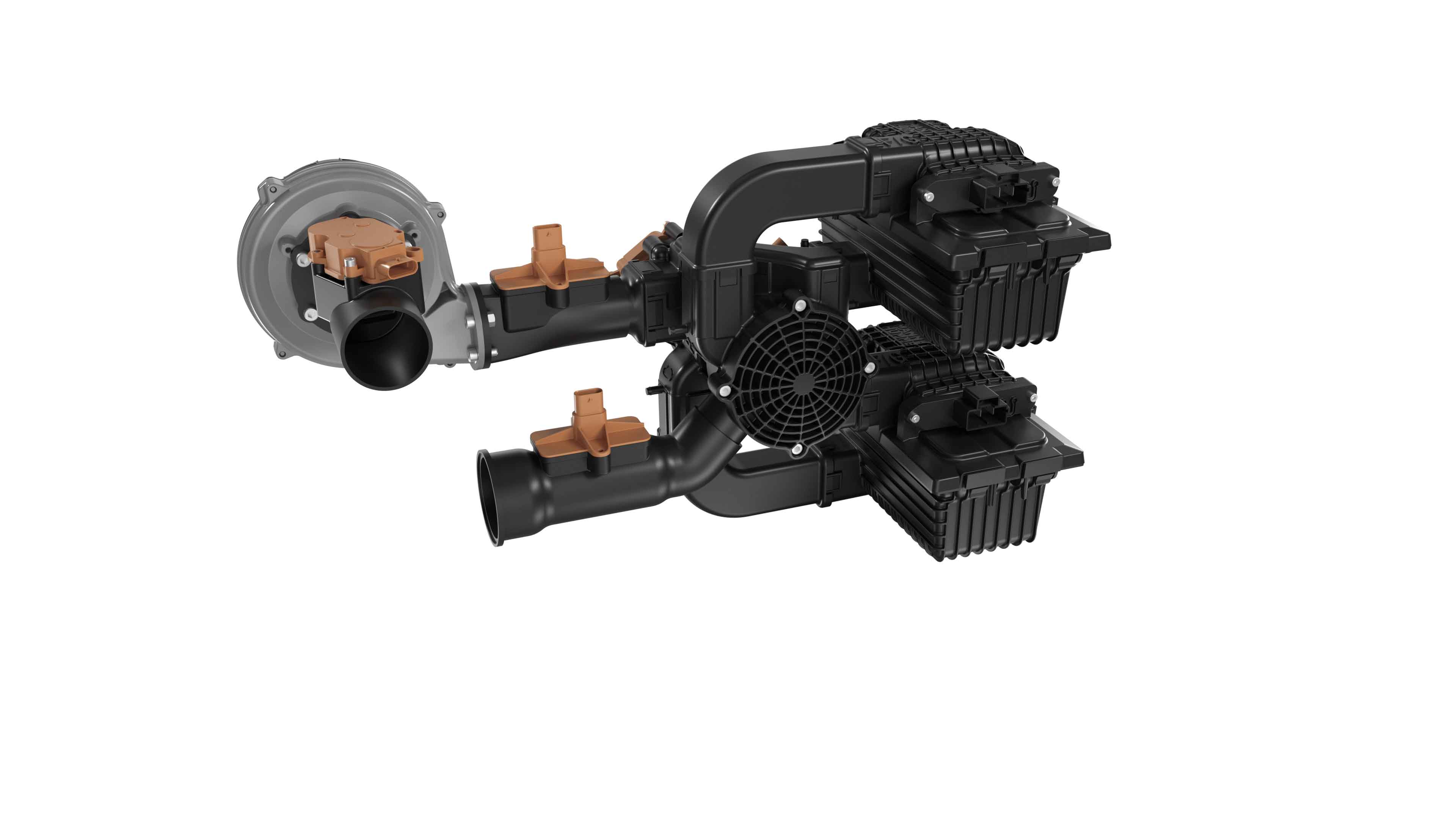Clear Vision and High Energy Efficiency
Intelligent recirculation management: MANN+HUMMEL showcases the new Cyclo-Multi-Sorber system at the Battery Show Europe 2023 in Stuttgart (May 23-25).
Ludwigsburg, May 22, 2023 – Tomorrow's mobility should be clean and sustainable. To ensure that the drive transition in traffic succeeds, the interplay of a wide variety of systems is required. At the Battery Show Europe 2023, the Ludwigsburg-based filtration specialist MANN+HUMMEL shows what is already feasible today – such as with the new Cyclo-Multi-Sorber. The intelligent system offers the promise of improved cabin air quality through humidity and CO2 control, but also provides a measurable increase in the range of battery-electric vehicles, especially at low and high outside temperatures (hall 4, booth D27).
Economical heating and cooling
The basic idea for the "Cyclo-Multi-Sorber Energy Saving and Interior Air Quality System" – CMS for short – arose from considerations of battery performance: "In the case of the combustion engine, heating and cooling were rarely discussed in connection with range," explains Benedikt Weller, Lead Product Engineer at MANN+HUMMEL. "On the one hand, there was always enough waste heat, and if the air conditioning system minimally increased fuel consumption, that wasn't much of a problem either. However, with electric vehicles, all energy has to come from the battery, so the issue becomes interesting. You have to ask yourself wherever energy can be saved."
No fogging, clean air
Electromobility is "a complex system in which all elements interlock and work together," says Weller. The obvious approach to energy-saving operation of heating, ventilation and air-conditioning systems in the passenger compartment, he says, was therefore to switch to recirculation operation. After all, "maintaining a temperature requires significantly less energy than cooling and heating outside air. The problem, however, is that the air quality then drops rapidly, that is, humidity and CO2 levels rise. Depending on the number of passengers, windows fog up within a very short time, posing a significant safety risk." An increased CO2 level in the cabin air, in turn, can lead to fatigue and malaise, a drop in one's concentration and the dreaded "microsleep".
Reduced power consumption
The solution: moisture and carbon dioxide must be removed from the cabin air – and in the most energy-efficient way possible, so that the savings effect achieved by recirculated air operation is not canceled out. The new CMS achieves this by allowing the CO2 concentration in the interior to be measured and regulated accordingly. First, granulate adsorbers capture the undesirable substances. If one adsorber is close to saturation, the system automatically switches to a second one during operation. "The adsorber units are regenerated as needed and in a very energy-saving way," explains Weller. "Unlike the conventional filter, which binds pollutants and is replaced when saturated, here H2O and CO2 are attached to a granular surface. With a small amount of heat applied, the accumulation is reversed and the substances can be transported to the outside." This regeneration requires only a fraction of the energy consumed by conventional heating and air conditioning systems. Measurements in field and test rig trials at cold and hot outside temperatures showed potential energy savings of over ten percent.
Complete solutions for cars and trucks
The fully automatic, self-calibrating complete systems for passenger cars and trucks are also capable of integrating additional information – such as the number of passengers determined by seat sensors, the route length recorded in the navigation system, or the expected battery charging time. MANN+HUMMEL is thus demonstrating once again that low-emission driving, energy saving and driving comfort are neither opposites nor utopia, but a realistic vision for mobility in the near future.
